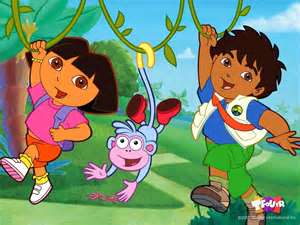From Knowledge to Knowledge –able
by Michael Wesch
Michael Wesch used the World on fire environment metaphor (The little bird that saved the world and all hope is not lost) I quote. Using this in order for “us” the audience to understand how the media and the tools we have today can be used in a positive an in a productive way not just a form of entertainment. It was interesting how he described his students and explained how the media affected them in class not in a good way somehow; he said many of today’s young population are still seeking for the “meaning of life and recognition”. Wesch points out how media is mainly commercial and the young are the main target. “Media is not just tools or means of communications. Media changes the way we communicate”. He gave the TV example and how it is a one way communication but now that we have all these tools (Technology); media can be used in a positive way. Demonstrating that global conversations can be made and how easily it can be spread.
Media can be distracting in many ways, he mentioned how many of the students in his class were affected and that they were not knowledge-able. Wesch decided to ask his students the following question “What does it feel to be a student today”, some the answers were: classes are too big, some teachers don’t even know their student names, “I’m browsing the internet checking Facebook etc. Ultimately explaining that is hard to connect with people.
He teaches his students to be knowledge able meaning learning how to:
Connect
Organize
Share
Collect
Collaborate
Publish all together
For many students like me who just came back to school after a while it is a different experience I came to RIC in 2004 and finish almost 2 years and I just came last year as a part time student to finish my degree and I definitely see the difference from almost 10 years ago. I have to say that the technology incorporated in some of the classes freaks me out a little bit not because I’m not capable but the fact that I have to learn to adjust to a different kind of learning environment from what I was used to. The new generation of College students have more tools when it comes to learning and Wesch wants us to understand that Technology is not just great way of communication and accessibility but we have to learn how to use it to make a positive impact in our world and be Knowledge-able.
Knowledge –ability is practice”.

































